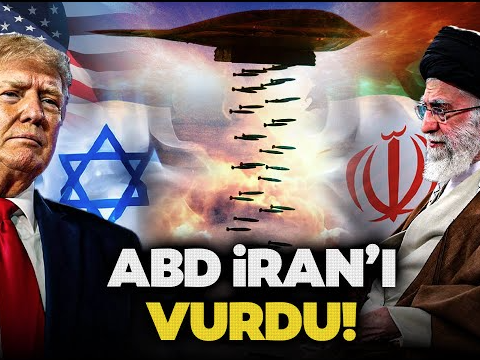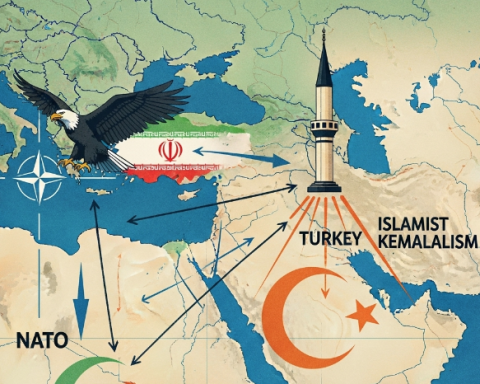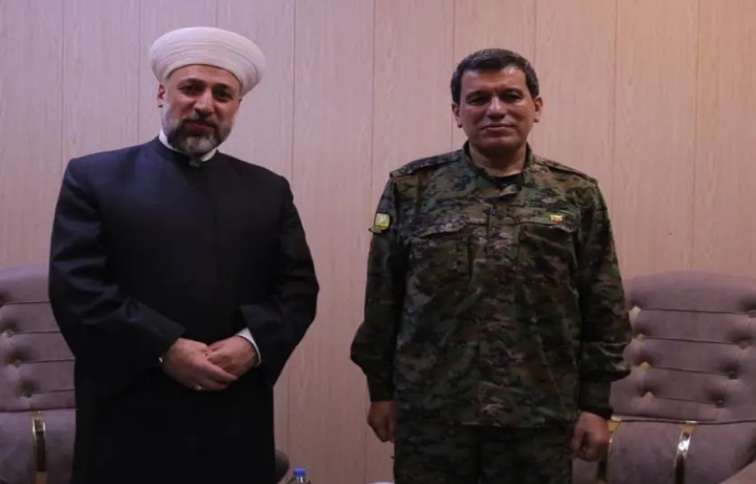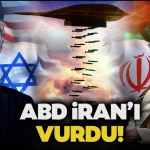Author Hayati Esen: October 7, 2023, marked a turning point in the course of the Israeli-Palestinian conflict. Hamas’ attack on Israel initiated a bloody war that has lasted for more than two years. In the aftermath of this assault, nearly 50,000 Palestinians lost their lives. This staggering figure highlights one of the most brutal conflicts in human history. But how realistic are the claims that Hamas, through its actions, has only worsened the situation for the Palestinian people? Did Hamas make a reckless move by engaging in a war it could not win? Or was there a deeper strategy behind this attack?
First, we must ask: Did Hamas truly believe it could win a war against a state? Looking at world history, there are almost no cases where non-state organizations have emerged victorious against countries with powerful armies. This is especially true when facing a state like Israel, which is highly advanced both militarily and technologically. Hamas was certainly aware that it could not achieve victory in a conventional sense. However, modern wars are no longer won solely on the battlefield. The essence of hybrid warfare lies in gaining psychological and ideological superiority, influencing the international order, and creating internal fractures within the enemy. This was precisely Hamas’ objective.
Prolonged conflicts, particularly for regular and professional armies, are not just a matter of military engagement; they also signal a problem that requires a viable resolution. In such wars, soldiers do not merely focus on frontline victories; they also seek long-term, peaceful solutions to the root causes of the conflict. This is because the brutal and destructive nature of war becomes even more pronounced in drawn-out confrontations. Especially in struggles against non-state organizations, ideological and moral factors become as significant as military strategy. When soldiers lose their ideological and moral conviction, they begin to question the purpose of the war and the necessity of the suffering it inflicts on innocent lives.
Over time, this dynamic leads to serious debates and tensions within military leadership. While discipline and strategy remain essential, the continuous loss of life and mounting tragedies inevitably cast doubt on the legitimacy of the conflict. Consequently, internal discussions within the military push for solutions to the Palestinian issue and encourage steps toward peace, ultimately becoming a crucial pressure point in ending the conflict in the long run.

The Romanticized Face of War: Indicators of Psychological and Moral Collapse
On the other hand, those who are not directly involved in warfare—the masses who remain outside the battlefield—tend to develop a different perspective by observing the tragedies of war from a distance. This group, often calling for war, fabricates heroic narratives around soldiers fighting on the front lines, glorifying the romanticized face of war. However, this portrayal is far removed from reality. Feeling like a hero at the expense of others’ deaths can be seen as a psychological disorder, entirely disconnected from human values and common sense.
1. Basking in Reflected Glory (BIRG) – The Illusion of Borrowed Victory
This concept refers to individuals feeling a sense of elevation through the successes of others, despite not contributing directly. In the context of war, those who are not directly involved may identify with military heroes, deriving a sense of importance or power from their victories. For instance, a nation’s military success may lead ordinary citizens to feel stronger and superior. This phenomenon is particularly common in societies with heightened nationalist sentiments. However, such identification ignores the brutal reality of war and focuses solely on its superficial victories, fostering a shallow perception of heroism detached from its destructive consequences.
2. Megalomania and Narcissistic Grandiosity
Individuals who glorify war and advocate for its continuation often exhibit narcissistic personality traits. Megalomania, or delusions of grandeur, can cause a person to see themselves as an integral part of military success, despite having no direct involvement. These individuals derive a sense of heroism at the cost of others’ suffering, seeking validation and recognition from society. Narcissistic grandiosity is characterized by an inflated sense of self-importance and an inability to acknowledge the suffering of others. This mindset prevents individuals from grasping the true horrors of war, leading them to adopt a self-centered perspective.
In particular, social media platforms serve as amplifiers for such romanticized perceptions of war. Those who glorify conflict through online posts contribute to the spread of a misleading heroism narrative, shaping public opinion in ways that obscure the war’s devastating impact.
3. Moral Disengagement
According to Albert Bandura’s theory, individuals use “moral disengagement” mechanisms to rationalize actions that contradict their moral values. In the context of war, ignoring its horrors and focusing solely on heroic narratives is a prime example of this psychological detachment. This mechanism allows individuals to overlook the devastating consequences of war while easing their own conscience. For instance, emphasizing the bravery of fallen soldiers while disregarding the suffering and destruction caused by war is a typical manifestation of moral disengagement. Such detachment contributes to society’s desensitization to war, making prolonged conflicts seem more acceptable and even inevitable.
4. Thanatophilia – The Fascination with Death
Some individuals may unconsciously be drawn to the sense of power associated with destruction and death. This tendency is especially prevalent among those who subscribe to extreme nationalist or militarist ideologies, leading them to construct their identity around war narratives that glorify heroism and victory while ignoring its devastating aspects. Thanatophilia, or the fascination with death, causes individuals to perceive war as an aesthetic or romantic phenomenon rather than as a brutal reality. This mindset is more common among those who have never experienced the actual horrors of battle firsthand. Such a fixation not only fuels the continuation of war but also fosters a societal numbness toward violence and destruction.
The psychological and ideological patterns outlined above do not contribute to a genuine understanding of war but rather serve as ideological tools to present oneself as patriotic.
As wars drag on and casualties rise, the psychological and ideological strain on professional armies and the soldiers involved increases. This pressure is not limited to frontline troops but extends to military leadership, influencing strategic decision-making processes. In modern and highly structured military organizations like the Israeli army, there is constant pressure to achieve swift resolutions and minimize losses. As a result, seeking more sustainable and peaceful solutions to the Palestinian issue becomes an unavoidable necessity. Moving forward, significant steps in political and diplomatic spheres, alongside military strategy, will play a crucial role in de-escalating tensions in the region.

The Initial Steps of a Regional and Global Theological Crisis
History is filled with examples of the disintegration of security bureaucracies and hardline ideological politicians. There are countless cases demonstrating how such collapses unfold. The United States’ defeat in the Vietnam War, the Soviet Union’s downfall in Afghanistan, and more recently, the quagmire the U.S. found itself in Iraq and Afghanistan all illustrate how even powerful states struggle against non-state organizations. Israel, too, may face a similar breakdown in this prolonged conflict. As wars drag on, fatigue and discontent grow among different segments of society. Israel’s security apparatus must contend with the constant stress of being in a state of high alert, while political leaders risk losing public support. This could lead to significant fractures and disintegration within Israel’s internal politics.
Donald Trump’s proposal to evacuate Gaza and relocate Palestinians to other countries reveals Israel’s deep vulnerabilities in this war and its attempt to reclaim psychological dominance. Israel, while maintaining its presence in Gaza, seeks not only physical control but also to impose a profound psychological pressure on the Palestinian people. However, this strategy is far from straightforward. The forced displacement of Palestinians will inevitably remind Israelis of their own history. The Jewish people have endured exile and persecution throughout history, with tragedies such as the Holocaust forming the foundation of Jewish identity and the establishment of the State of Israel. Such policies against Palestinians may reopen historical wounds and even challenge Jewish theological arguments themselves.
Questioning Judaism inevitably leads to a broader scrutiny of the legitimacy of Israel and Zionism, posing an existential threat to the state. Israel defines itself as a “Jewish state,” and this identity has been embedded in its governance since its inception. However, forced displacement policies targeting Palestinians may trigger criticism that Israel is betraying its own values and historical legacy. These concerns will not only emerge in international forums but will also spark serious debates within Israeli society itself. The younger generation, in particular, may begin to critically reassess Israel’s policies toward Palestine, questioning the very legitimacy of the state’s actions.
Furthermore, Israel’s policies toward Palestinians could provoke serious religious debates. Judaism upholds values such as justice and compassion. However, the use of violence and forced displacement against Palestinians stands in stark contrast to these principles. Such contradictions could lead to backlash from religious leaders and believers within Israel. Liberal Jewish communities, in particular, may criticize the government’s policies and call for a reassessment of religious values. These internal ideological and theological fractures could create deep divisions within Israeli society.
On the international stage, Israel’s global image continues to deteriorate. While Western countries recognize Israel’s security concerns, they also persist in condemning its human rights violations and breaches of international law. Israel’s policies toward Palestinians are facing increasing backlash from the global public, which could lead to serious challenges in its international relations. Institutions such as the European Union and the United Nations may impose sanctions or apply diplomatic pressure on Israel. As global criticism mounts, Israel’s strategic position in the international arena may become increasingly precarious.
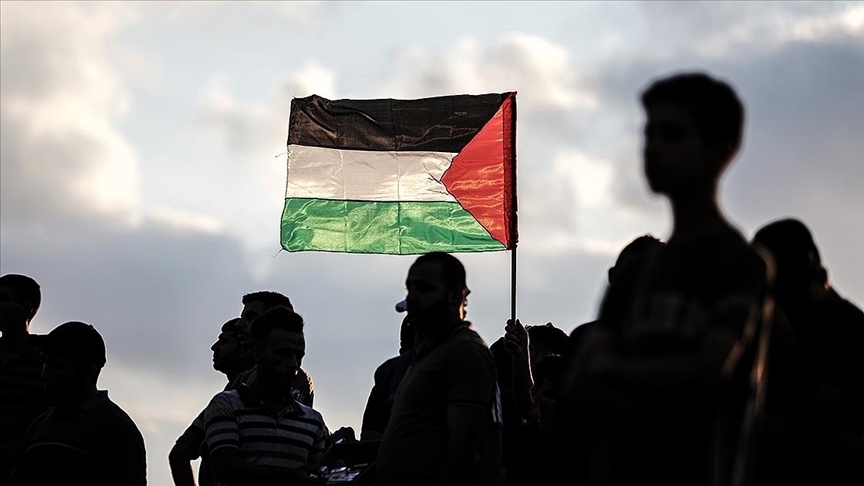
Will History Be Written, or Will Deadlock Persist?
Hamas’ humane treatment of hostages during their release and the subsequent media coverage left a significant mark on public consciousness. Such actions not only improved Hamas’ image but also strengthened the legitimacy of the Palestinian cause. The global public is accustomed to seeing armed groups mistreat hostages, yet Hamas’ approach surprised even Western media. The safe release of hostages under humane conditions demonstrated that Hamas is not merely a “terrorist organization” but a political and humanitarian actor with a specific stance. These images gained widespread attention in international media and rapidly spread across social media platforms. As a result, Hamas garnered international sympathy and facilitated broader understanding of the Palestinian struggle.
Such actions are laying the foundations for a future Palestinian state. The establishment of a state is not only dependent on military and political successes but also on moral and humanitarian values. Hamas’ humane treatment of hostages could serve as a crucial step toward the international recognition of Palestine as a legitimate state. These behaviors help shape the perception of Palestine not only as a victim but also as a society committed to justice and humanitarian principles. This, in turn, may ease the path for a future Palestinian state to gain acceptance in the international community.
Records and documentation will shape not only the present but also the future. With the advancement of technology, all humanitarian and inhumane actions are being recorded. These records will find their place in history books and serve as evidence in international legal proceedings. Hamas’ humane treatment of hostages will be a notable part of these records, reinforcing the legitimacy of the Palestinian cause. Similarly, Israel’s violent policies toward Palestinians will also be documented, potentially leading to its further isolation in the international arena.
Even though Hamas knows it cannot win militarily, it is pushing Israel toward fragmentation on psychological and ideological fronts. Modern wars are no longer won solely through military strength. Psychological and ideological battles have become critical determinants of war outcomes. Hamas challenges Israel not just militarily but also on psychological and ideological levels. Israel’s long-standing repression policies are not breaking Palestinian resistance but instead strengthening it further. This situation is causing significant wear and tear within Israeli society. Particularly, the younger generation is beginning to question Israel’s policies toward Palestine, leading to debates on the legitimacy of the state’s actions. Such discussions could trigger deep fractures in Israel’s internal politics.
This war is not just between Palestine and Israel; it also marks a critical juncture for the future of the international order. The Israeli-Palestinian conflict has evolved beyond a regional issue into a global concern. It holds immense significance for the future of international law, human rights, and justice. Israel’s policies toward Palestinians are drawing widespread criticism, potentially reshaping the international order. Western countries, in particular, may reassess their support for Israel and adopt a more just and humanitarian stance. This shift could signal the beginning of a new era in global diplomacy.
Although Hamas’ October 7 operation appeared to be a military confrontation on the surface, it primarily reflected an effort to gain psychological and ideological superiority in the international arena. This strategy suggests that Hamas’ primary goal was not outright military victory but rather reigniting global attention on the Palestinian cause and damaging Israel’s international reputation. However, how this strategy will ultimately shape history depends on the actions of all parties involved and how the international order interprets this conflict.
Note: References have been provided with explanatory footnotes for the reader’s clarity.
References
-
Bandura, A. (1999). Moral Disengagement in the Perpetration of Inhumanities. Personality and Social Psychology Review, 3(3), 193-209.
- Bandura’s study elaborates on the mechanisms of moral disengagement, explaining how individuals justify inhumane acts such as violence and war.
-
Cialdini, R. B., & Richardson, K. D. (1980). Two Indirect Tactics of Image Management: Basking and Blasting. Journal of Personality and Social Psychology, 39(3), 406-415.
- This paper examines the concept of “Basking in Reflected Glory” (BIRG), analyzing how individuals tend to associate themselves with the successes of others.
-
Kelman, H. C. (1973). Violence Without Moral Restraint: Reflections on the Dehumanization of Victims and Victimizers. Journal of Social Issues, 29(4), 25-61.
- Kelman’s research investigates how moral constraints are lifted in war and violence, leading to the dehumanization of both victims and perpetrators.
-
Freud, S. (1930). Civilization and Its Discontents. W. W. Norton & Company.
- Freud explores unconscious human reactions to destruction and death, as well as the psychological roots of societal conflicts.
-
Horgan, J. (2005). The Psychology of Terrorism. Routledge.
- Horgan analyzes the psychological strategies of terrorist organizations and their impact on societies.
-
Kressel, N. J. (1996). Mass Hate: The Global Rise of Genocide and Terror. Plenum Press.
- This work examines the psychological foundations of mass hatred and violence, providing an analysis of societal breakdowns in war and conflict.
-
Volkan, V. D. (1997). Bloodlines: From Ethnic Pride to Ethnic Terrorism. Farrar, Straus and Giroux.
- Volkan delves into the psychological dimensions of ethnic conflicts and how historical traumas resurface in modern times.
-
Arendt, H. (1963). Eichmann in Jerusalem: A Report on the Banality of Evil. Viking Press.
- Arendt explores the concept of the “banality of evil,” investigating how individuals detach themselves from moral responsibility in times of war.
-
Fromm, E. (1973). The Anatomy of Human Destructiveness. Holt, Rinehart and Winston.
- Fromm analyzes human tendencies toward destruction and the psychological roots of war.
-
Galtung, J. (1990). Cultural Violence. Journal of Peace Research, 27(3), 291-305.
- Galtung introduces the concept of cultural violence, studying the long-term effects of war on societies.
-
Kelman, H. C., & Hamilton, V. L. (1989). Crimes of Obedience: Toward a Social Psychology of Authority and Responsibility. Yale University Press.
- This book examines the relationship between obedience to authority and moral responsibility, highlighting how individuals experience moral collapse in war.
-
Nietzsche, F. (1887). On the Genealogy of Morality.
- Nietzsche’s work explores the origins of morality and how individuals perceive power, violence, and death.




